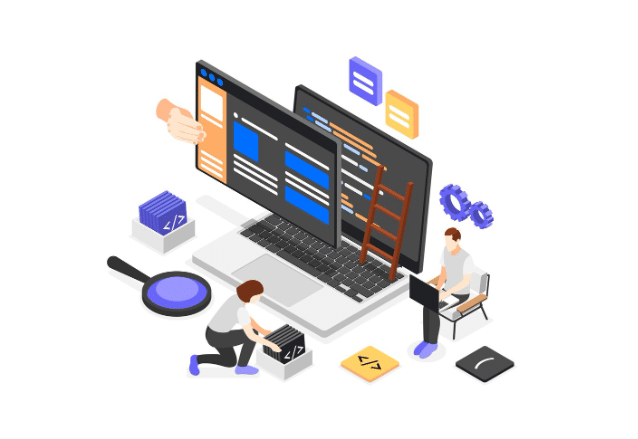
Introduction
In today’s fast-paced automotive market, customer expectations are sky-high. Buyers want quick responses, personalized service, and a seamless experience from their first online inquiry to driving off the lot. That’s exactly why automotive CRM software has become a must-have for modern dealerships.
But despite its growing popularity, many dealership owners and managers still hesitate to switch. Why? Because there’s a lot of outdated advice and misinformation floating around. From thinking it’s “too complicated” to believing “it’s only for big dealerships,” these myths are costing businesses more than they realize.
In this blog, we’re setting the record straight. We’ll break down the five most common myths about automotive CRM software. Also, explore why believing them could be holding your dealership back from real growth.
What is Automotive CRM Software, and why do Dealerships need it?
Automotive CRM software helps dealerships manage leads, track sales, follow up with customers, and organize service reminders all in one place. It goes beyond storing contact details by streamlining the entire sales and service process.
This software integrates with your DMS, supports vehicle inventory tracking, automates test drive scheduling, and analyzes buyer behavior. It simplifies daily tasks and ensures every customer interaction is timely and organized.
Unlike generic CRM tools, automotive CRM software fits how dealerships work. It gives your team the tools to respond faster, close more deals, and improve customer retention. They do not have to rely on outdated systems or manual processes. Yet, common myths still prevent many dealerships from using it to its full potential.
Why These Myths Exist: The Root of CRM Misconceptions in Car Dealerships?
New technology can seem overwhelming in a fast-paced dealership. Most myths about CRM software come from fear, outdated info, or past experiences not facts.
Here are a few reasons why these myths continue to circulate:
1. Bad Experiences with Generic CRM Tools
Some dealerships tried using CRM systems that weren’t designed for automotive. They were clunky, hard to integrate with DMS tools, or just didn’t fit the way dealerships operate. That frustration leads to the belief that all CRMs are the same, which isn’t true.
2. Fear of Change
Sales teams and managers often stick to what’s familiar, like spreadsheets or basic lead trackers. Change feels risky, especially when the current system “seems to work.” The myth here is that implementing CRM will slow things down or require a huge learning curve.
3. Misinformation from Peers or Forums
Dealers often hear secondhand stories that someone in a 20 Group says a CRM slowed things down, or an online thread claims it’s overpriced. Without context, one negative opinion can shape how an entire team views CRM software, even if it’s not accurate.
4. Lack of Awareness About Auto-Specific Solutions
Many dealerships don’t realize that CRM tools built specifically for the automotive space exist. When they hear “CRM,” they picture clunky, corporate platforms, not something that manages leads, test drives, or service follow-ups on a showroom floor.
5. Cost Misconceptions
Some believe automotive CRM software is too expensive or only useful for large dealer groups. In reality, many platforms are scalable and budget-friendly. And when used correctly, the return on investment easily makes up for the cost.
In short, most myths are born from misunderstanding or bad matches, not from the actual performance of auto-focused CRM software. When dealerships rely on hearsay, they risk missing out on tools that could significantly improve sales and customer satisfaction.
Now let’s take a look at the most common myths and bust them one by one.
5 Common Myths About Automotive CRM Software in Car Dealerships
CRM for automotive dealerships can truly transform how a dealership operates, but only if you see it for what it is, not what the myths make it out to be. Let’s break down five of the most common misconceptions that hold dealerships back and bust them with the truth.
Myth 1: CRM Software is Too Complicated for My Sales Team
Today’s automotive CRM software is built with dealership users in mind. They’re not bulky enterprise tools made for tech experts; they’re user-friendly platforms that help your team sell more cars with less effort. Most CRMs come with simple dashboards and mobile apps so your sales team can access everything, even on the lot or showroom floor.
Why It Matters:
If your team finds the tool easy to use, they’ll use it. That means better lead follow-ups, smoother communication, and faster conversions.
Myth 2: My Dealership is Too Small to Need CRM Software
CRM isn’t just for big dealership groups with hundreds of leads pouring in daily. Even small dealerships benefit from having all their customer data, lead activity, and follow-up schedules in one place. Smaller teams can’t afford to lose leads they need CRM the most to stay competitive and close deals efficiently.
Why It Matters:
CRM helps you punch above your weight. With automation and smart tracking, your small team can perform like a bigger one without stretching your resources thin.
Myth 3: It’s Too Expensive and Doesn’t Justify the Cost
Consider automotive CRM software as an investment, not just another line item. It’s built to help you recover more leads, convert more buyers, and retain customers long after the sale. Plus, there are solutions for every budget, from simple tools for small teams to robust systems for multi-rooftop operations.
Why It Matters:
Losing even one qualified lead due to missed follow-up can mean losing a sale worth thousands. A good CRM helps you capture and convert those opportunities, making it a tool that pays for itself.
Myth 4: It Will Replace Human Interaction with Automation
CRM doesn’t replace your team, it empowers them. It automates repetitive tasks like follow-up reminders, data entry, but it never removes the human touch. In fact, with better customer insights at their fingertips, your team can personalize interactions more than ever before.
Why It Matters:
Customers want to feel remembered and understood. CRM helps your staff deliver that level of service by giving them the tools and information to do so effectively.
Myth 5: It’s Only Useful for the Sales Department
A good Automotive CRM software supports your entire dealership, not just the sales floor. From service departments sending out maintenance reminders to marketing teams, CRM connects the dots across departments. It’s about delivering a better experience before, during, and after the sale.
Why It Matters:
When every department works from the same playbook, you avoid dropped balls and disconnected communication. That’s how you build long-term loyalty.
What happens when Dealerships Believe these Myths
Believing in CRM myths may seem harmless at first, but over time, they quietly chip away at a dealership’s efficiency, customer satisfaction, and ultimately profits. Let’s break down the real consequences that dealerships face when they avoid CRM software based on misconceptions.
1. Missed Leads, Missed Sales
When dealerships think they don’t need CRM, they end up relying on spreadsheets or memory to manage leads. The result? Missed callbacks, delayed responses, and leads slipping through the cracks. In today’s market, buyers expect quick replies; if you’re not fast, they move on.
The impact: Lost revenue and frustrated prospects who may never return.
2. Disorganized Operations
Without a centralized CRM, teams operate in silos. Sales, service, and marketing teams often work with different tools or outdated systems, leading to confusion and duplicated efforts.
The impact: Poor communication, inconsistent customer experiences, and operational chaos that slows down your entire dealership.
3. Weak Customer Relationships
If you believe that CRM is impersonal or “too automated,” you miss out on a key advantage of personalization. Without automotive CRM software, sales reps lack access to vital customer details like past purchases, preferred contact methods, or service history.
The impact: Your follow-ups sound generic, and customers don’t feel valued, leading to lost trust and loyalty.
4. Limited Visibility for Management
Dealerships that skip CRM tools also skip access to real-time data. Without dashboards or performance insights, managers can’t track lead sources, sales performance, or employee productivity.
The impact: No clear way to identify what’s working or fix what’s not. That stunts growth and creates a guessing game in decision-making.
5. Burnout Among Sales Staff
When there’s no CRM to automate follow-ups, track conversations, or prioritize leads, the sales team ends up doing everything manually. That drains their time and energy fast.
The impact: Burned-out employees, higher turnover, and a frustrated team that spends more time organizing than selling.
6. Stagnant Growth and Poor Marketing ROI
CRM helps track customer behavior and buying patterns critical for targeted marketing. Without it, dealerships often launch broad, one-size-fits-all campaigns that miss the mark.
The impact: Low engagement, wasted ad spend, and fewer qualified leads flowing into the pipeline.
Conclusion
In the fast-paced auto industry, believing outdated myths about CRM tools can quietly cost your dealership more than you realize. Missed leads, delayed responses, and a disorganized sales process may seem small at first, but they harm your sales.
The reality is, automotive CRM software isn’t just for large or tech-heavy dealerships. It’s for any team that wants to build stronger customer relationships, streamline sales, and stay competitive in today’s digital market.
If you’ve held off because you thought it was too expensive or unnecessary, it’s time to rethink that. The long-term cost of not having a CRM is much higher. Now’s the time to cut through the myths and take a step toward better performance and growth. Your team and your customers will thank you.

Top 10 IT Certifications That Actually Boost Your Salary in 2026

Amazon Ads vs. Google Ads: Which Platform Drives Better eCommerce Sales?

Where to Buy a Passport Online for Uninterrupted Global Travel


